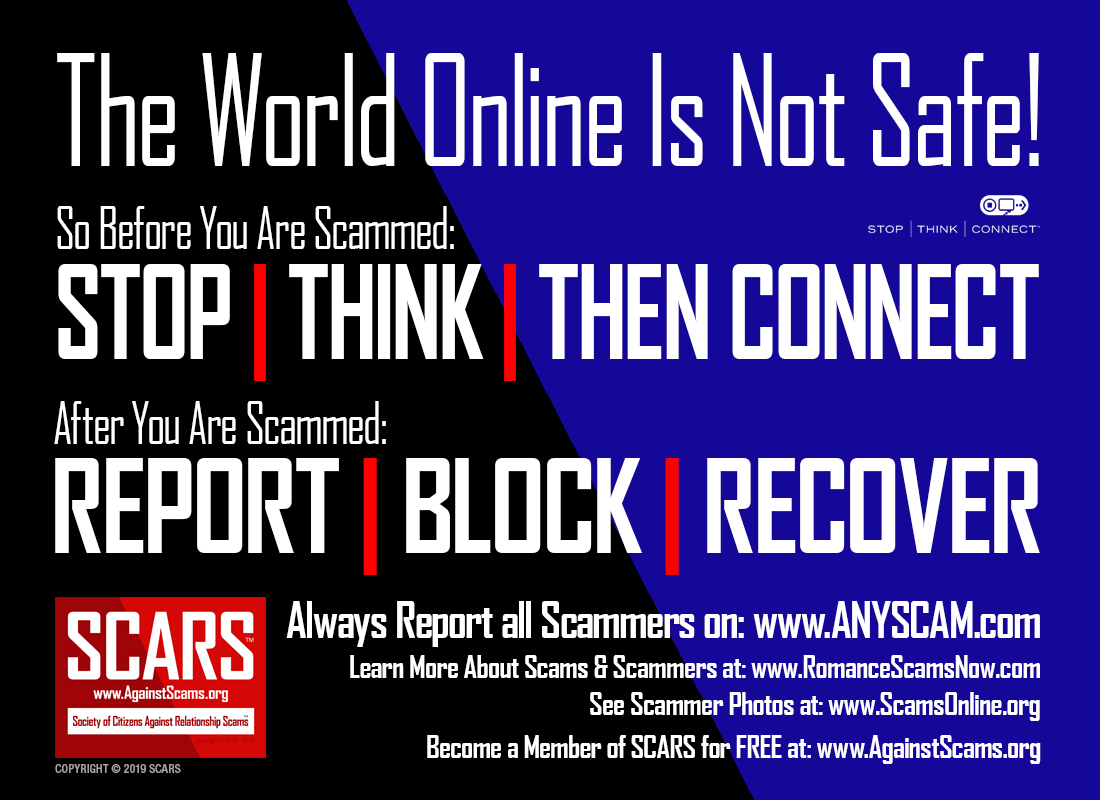SCARS™ Special Report: Europol’s 2020 Cybercrime Internet Organised Crime Threat Assessment (IOCTA)
Europol’s 2020 cybercrime report updates on the latest trends and the current impact of cybercrime within the EU and beyond.
Source: EUROPOL
So much has changed since Europol published last year’s Internet Organised Crime Threat Assessment (IOCTA). The global COVID-19 pandemic that hit every corner of the world forced us to reimagine our societies and reinvent the way we work and live. During the lockdown, we turned to the internet for a sense of normality: shopping, working, and learning online at a scale never seen before. It is in this new normal that Europol publishes its 7th annual IOCTA. The IOCTA seeks to map the cybercrime threat landscape and understand how law enforcement responds to it. Although the COVID-19 crisis showed us how criminals actively take advantage of society at its most vulnerable, this opportunistic behavior of criminals should not overshadow the overall threat landscape. In many cases, COVID-19 has enhanced existing problems.
CROSS-CUTTING CRIME
Social engineering and phishing remain an effective threat to enable other types of cybercrime. Criminals use innovative methods to increase the volume and sophistication of their attacks, and inexperienced cybercriminals can carry out phishing campaigns more easily through crime as-a-service. Criminals quickly exploited the pandemic to attack vulnerable people; phishing, online scams and the spread of fake news became an ideal strategy for cybercriminals seeking to sell items they claim will prevent or cure COVID-19.
Encryption continues to be a clear feature of an increasing number of services and tools. One of the principal challenges for law enforcement is how to access and gather relevant data for criminal investigations. The value of being able to access data of criminal communication on an encrypted network is perhaps the most effective illustration of how encrypted data can provide law enforcement with crucial leads beyond the area of cybercrime.
MALWARE REIGNS SUPREME
Ransomware attacks have become more sophisticated, targeting specific organizations in the public and private sectors through victim reconnaissance. While the COVID-19 pandemic has triggered an increase in cybercrime, ransomware attacks were targeting the healthcare industry long before the crisis. Moreover, criminals have included another layer to their ransomware attacks by threatening to auction off the comprised data, increasing the pressure on the victims to pay the ransom. Advanced forms of malware are a top threat in the EU: criminals have transformed some traditional banking Trojans into modular malware to cover more PC digital fingerprints, which are later sold for different needs.
CHILD SEXUAL ABUSE MATERIAL CONTINUES TO INCREASE
The main threats related to online child abuse exploitation have remained stable in recent years, however, detection of online child sexual abuse material saw a sharp spike at the peak of the COVID-19 crisis. Offenders keep using a number of ways to hide this horrifying crime, such as P2P networks, social networking platforms, and using encrypted communications applications. Dark web communities and forums are meeting places where participation is structured with affiliation rules to promote individuals based on their contribution to the community, which they do by recording and posting their abuse of children, encouraging others to do the same. Livestream of child abuse continues to increase, becoming even more popular than usual during the COVID-19 crisis when travel restrictions prevented offenders from physically abusing children. In some cases, video chat applications in payment systems are used which becomes one of the key challenges for law enforcement as this material is not recorded.
PAYMENT FRAUD: SIM SWAPPING A NEW TREND
SIM swapping, which allows perpetrators to take over accounts, is one of the new trends in this year’s IOCTA. As a type of account takeover, SIM swapping provides criminals access to sensitive user accounts. Criminals fraudulently swap or port victims’ SIMs to one in the criminals’ possession in order to intercept the one-time password step of the authentication process.
CRIMINAL ABUSE OF THE DARK WEB
In 2019 and early 2020 there was a high level of volatility on the dark web. The lifecycle of dark web marketplaces has shortened and there is no clear dominant market that has risen over the past year. Tor remains the preferred infrastructure, however, criminals have started to use other privacy-focused, decentralized marketplace platforms to sell their illegal goods. Although this is not a new phenomenon, these sorts of platforms have started to increase over the last year. OpenBazaar is noteworthy, as certain threats have emerged on the platform over the past year such as COVID-19-related items during the pandemic.
Catherine De Bolle, Europol’s Executive Director commented: “Cybercrime affects citizens, businesses and organisations across the EU. Europol plays a key role in countering cybercrime by working with our many partners in law enforcement and the private sector and by offering innovative solutions and effective, comprehensive support to investigations. I hope this analysis can inform effective responses to these evolving threats and make Europe safer”.
Vice-President for Promoting our European Way of Life, Margaritis Schinas, who is leading the European Commission’s work on the European Security Union, said: «Cybercrime is a hard reality. While the digital transformation of our societies evolves, so does cybercrime which is becoming more present and sophisticated. We will spare no efforts to further enhance our cybersecurity and step up law enforcement capabilities to fight against these evolving threats. Europol has a major role to play».
EU Commissioner for Home Affairs, Ylva Johansson, said: “The Coronavirus Pandemic has slowed many aspects of our normal lives. But it has unfortunately accelerated online criminal activity. Organised Crime exploits the vulnerable, be it the newly unemployed, exposed businesses, or, worst of all, children. This report shows the urgent need for the EU to step up the fight against organised crime [online] and confirms the essential role of Europol in that fight”.
Edvardas Šileris, Head of European Cybercrime Centre said: “I am pleased to welcome the 2020 edition of the IOCTA – our flagship document, an essential resource for EU’s law enforcement and policy makers. I am very thankful to all the partners who have contributed to this year’s assessment and have helped us identify the key theme defining the current landscape: cybercrime is an evolution, not a revolution”.
The 2020 IOCTA contributes to setting priorities for the 2021 EMPACT operational plans, which follow the priorities defined as: disruption criminal activities, combating child sexual abuse and child sexual exploitation, and targeting criminals involved in fraud and counterfeiting of non-cash means of payment.
INTERNET ORGANISED CRIME THREAT ASSESSMENT (IOCTA) 2020
The IOCTA is Europol’s flagship strategic product highlighting the dynamic and evolving threats from cybercrime. It provides a unique law enforcement focused assessment of emerging challenges and key developments in the area of cybercrime. We are grateful for the many contributions from our colleagues within European law enforcement community and to our partners in the private industry for their input to the report. Combining law enforcement and private sector insights allows us to present this comprehensive overview of the threat landscape.
The data collection for the IOCTA 2020 took place during the lockdown implemented as a result of the COVID-19 pandemic. Indeed, the pandemic prompted significant change and criminal innovation in the area of cybercrime. Criminals devised both new modi operandi and adapted existing ones to exploit the situation, new attack vectors and new groups of victims.
IOCTA 2020 REPORT
internet_organised_crime_threat_assessment_iocta_2020
TAGS: SCARS, Eurpol, European Threat Assessment, Cybercrime, Cybercriminals, Ransomware, Social Engineering, Law Enforcement, Anti-Scam, Scams, Scammers, Fraudsters, Cybercrime, Crybercriminals, Romance Scams, Scam Victims,
SCARS™ Team
Society of Citizens Against Relationship Scams Inc.
A Worldwide Crime Victims Assistance Nonprofit Organization
Visit: www.AgainstScams.org
Contact Us: Contact@AgainstScams.org
PLEASE SHARE OUR ARTICLES WITH YOUR FRIENDS & FAMILY
HELP OTHERS STAY SAFE ONLINE – YOUR KNOWLEDGE CAN MAKE THE DIFFERENCE!
The Latest SCARS Posts:
FIND MORE SCAM NEWS
«SCAMCRIME.COM»
JOIN US ON FACEBOOK
«CLICK HERE»
END
MORE INFORMATION
– – –
Tell us about your experiences with Romance Scammers in our
« Scams Discussion Forum on Facebook »
– – –
FAQ: How Do You Properly Report Scammers?
It is essential that law enforcement knows about scams & scammers, even though there is nothing (in most cases) that they can do.
Always report scams involving money lost or where you received money to:
- Local Police – ask them to take an “informational” police report – say you need it for your insurance
- U.S. State Police (if you live in the U.S.) – they will take the matter more seriously and provide you with more help than local police
- Your National Police or FBI « www.IC3.gov »
- The SCARS|CDN™ Cybercriminal Data Network – Worldwide Reporting Network on « www.Anyscam.com »
This helps your government understand the problem, and allows law enforcement to add scammers on watch lists worldwide.
– – –
To learn more about SCARS visit « www.AgainstScams.org »
Please be sure to report all scammers
on « www.Anyscam.com »
Disclaimer:
SCARS IS A DIGITAL PUBLISHER AND DOES NOT OFFER HEALTH OR MEDICAL ADVICE, LEGAL ADVICE, FINANCIAL ADVICE, OR SERVICES THAT SCARS IS NOT LICENSED OR REGISTERED TO PERFORM.
IF YOU’RE FACING A MEDICAL EMERGENCY, CALL YOUR LOCAL EMERGENCY SERVICES IMMEDIATELY, OR VISIT THE NEAREST EMERGENCY ROOM OR URGENT CARE CENTER. YOU SHOULD CONSULT YOUR HEALTHCARE PROVIDER BEFORE FOLLOWING ANY MEDICALLY RELATED INFORMATION PRESENTED ON OUR PAGES.
ALWAYS CONSULT A LICENSED ATTORNEY FOR ANY ADVICE REGARDING LEGAL MATTERS.
A LICENSED FINANCIAL OR TAX PROFESSIONAL SHOULD BE CONSULTED BEFORE ACTING ON ANY INFORMATION RELATING TO YOUR PERSONAL FINANCES OR TAX RELATED ISSUES AND INFORMATION.
This content and other material contained on the website, apps, newsletter, and products (“Content”), is general in nature and for informational purposes only and does not constitute medical, legal, or financial advice; the Content is not intended to be a substitute for licensed or regulated professional advice. Always consult your doctor or other qualified healthcare provider, lawyer, financial, or tax professional with any questions you may have regarding the educational information contained herein. SCARS makes no guarantees about the efficacy of information described on or in SCARS’ Content. The information contained is subject to change and is not intended to cover all possible situations or effects. SCARS does not recommend or endorse any specific professional or care provider, product, service, or other information that may be mentioned in SCARS’ websites, apps, and Content unless explicitly identified as such.
The disclaimers herein are provided on this page for ease of reference. These disclaimers supplement and are a part of SCARS’ website’s Terms of Use.
Legal Notices:
All original content is Copyright © 1991 – 2020 Society of Citizens Against Relationship Scams Inc. (D.B.A SCARS) All Rights Reserved Worldwide & Webwide. Third-party copyrights acknowledge.
SCARS, SCARS|INTERNATIONAL, SCARS, SCARS|SUPPORT, SCARS, RSN, Romance Scams Now, SCARS|INTERNATION, SCARS|WORLDWIDE, SCARS|GLOBAL, SCARS, Society of Citizens Against Relationship Scams, Society of Citizens Against Romance Scams, SCARS|ANYSCAM, Project Anyscam, Anyscam, SCARS|GOFCH, GOFCH, SCARS|CHINA, SCARS|CDN, SCARS|UK, SCARS|LATINOAMERICA, SCARS|MEMBER, SCARS|VOLUNTEER, SCARS Cybercriminal Data Network, Cobalt Alert, Scam Victims Support Group, are all trademarks of Society of Citizens Against Relationship Scams Inc., All Rights Reserved Worldwide
Contact the law firm for the Society of Citizens Against Relationship Scams Incorporated by email at legal@AgainstScams.org











Zaletrust scam I met an Asian girl via tinder Ms Keiko Sato who convinced/seduced me into investing into Zaletrust.com It seemed like a great opportunity at the time but 6 weeks after investing they told me is was time to withdraw fund as the platform was changing. Ms Keiko then created drama supposedly involving police. To withdraw fund I needed to pay packaging fees. Everytime I paid a fee there was another fee was added I hit $16,000 is fees and still l have not received my fund, They keep adding fees DO NOT INVEST IN ZALETRUST They string you along and the block your accounts when you complain